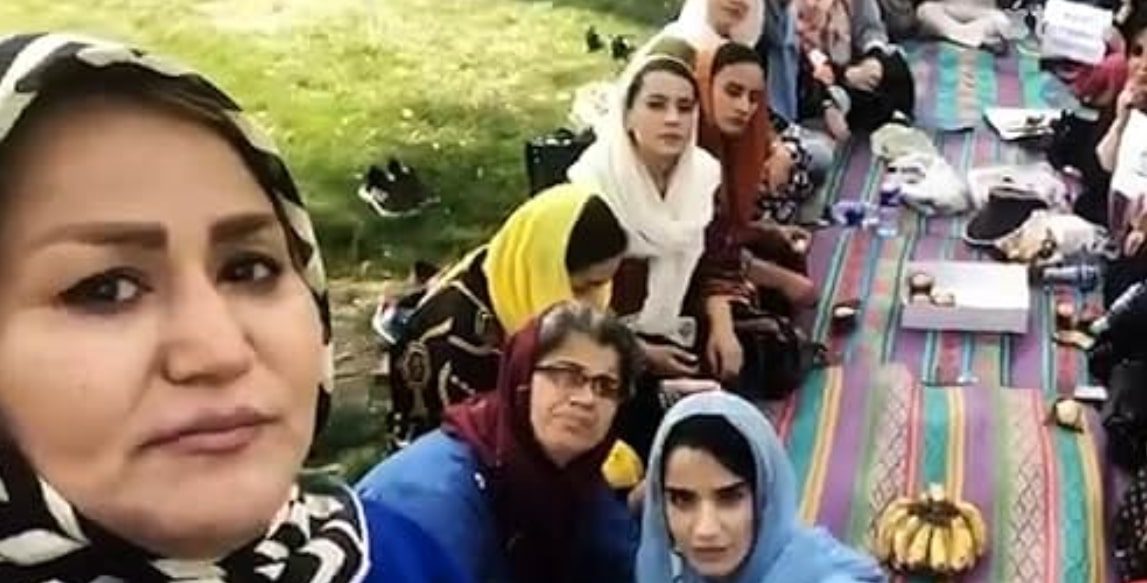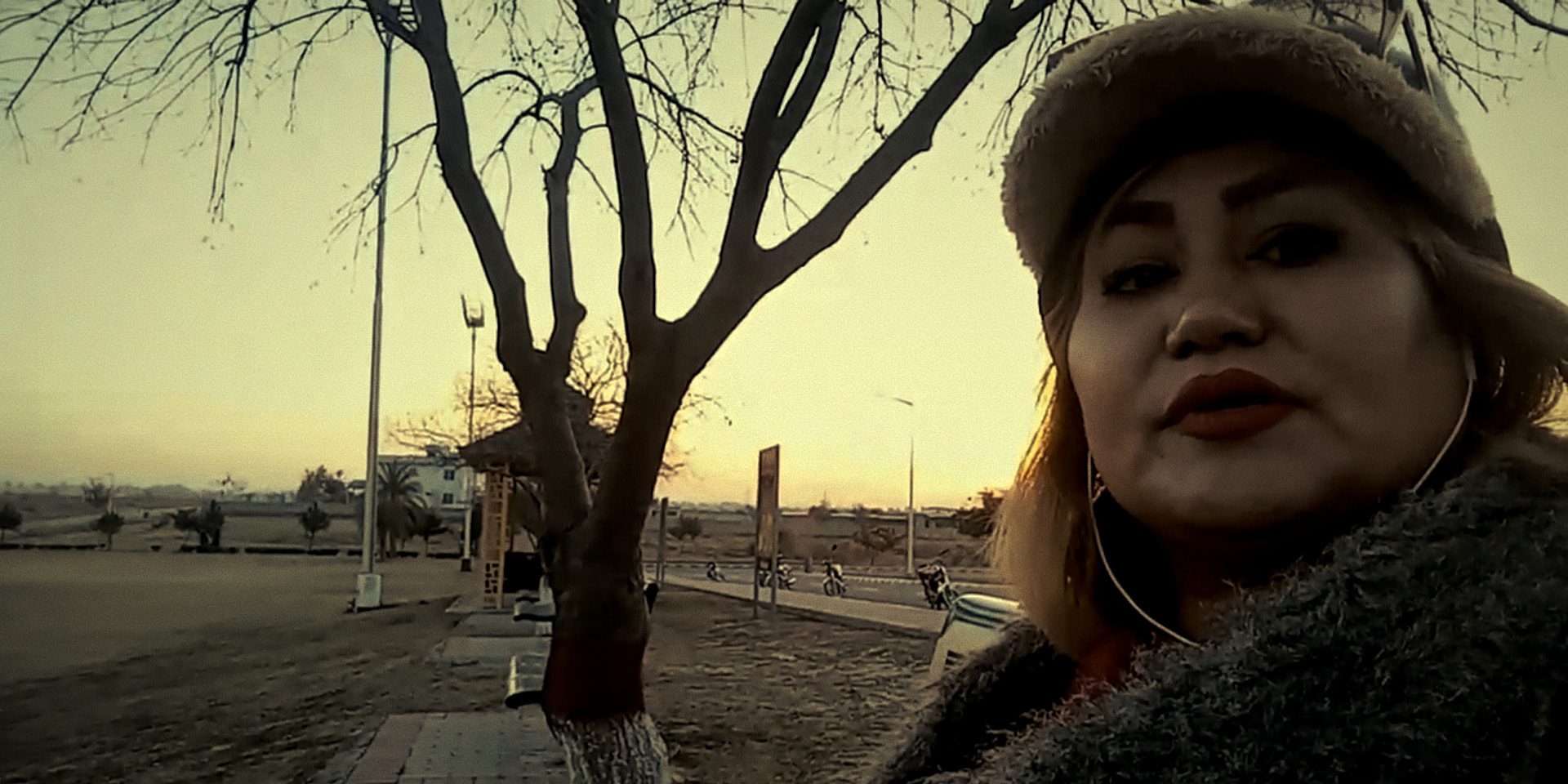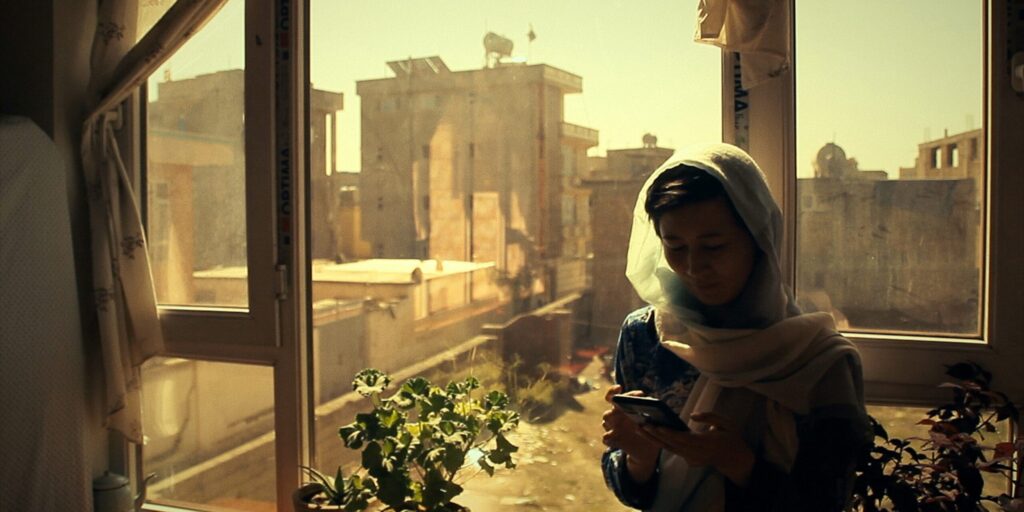In August 2021, the return of the Taliban to Afghanistan initiated a significant transformation in the nation’s social and political dynamics, particularly impacting the lives of women. In response to the renewed repression, a surge of activism and defiance emerged, with many women determined to resist the limitations placed upon them. Apple TV+’s documentary ‘Bread and Roses’ shines a light on the inspiring narratives of these women, showcasing their strength, resilience, and tireless advocacy for their rights. Among the compelling subjects featured in the documentary are Taranom and Sharifa, two women from markedly different backgrounds yet united by their fierce determination to fight for their rights and futures.
Sharifa’s Struggle After the Taliban’s Resurgence
The Taliban’s takeover of Kabul on August 15, 2021, following the withdrawal of U.S. forces, marked a drastic change for Afghan women, who had enjoyed a level of freedom over the previous two decades. The return of the Taliban heralded the reinstatement of draconian laws that severely restricted women’s rights. Sharifa, a dedicated government employee, found her life dramatically altered within a matter of hours. As the Taliban imposed new decrees forbidding women from holding public sector jobs, many women were forcibly removed from their roles in government.
Coming from a conservative family, Sharifa faced immense societal pressure to conform to traditional gender roles. Her family expected her to remain silent and submissive, adhering to the norms for women within Afghan society. Yet, beneath this pressure, a fierce resistance began to grow within her. Motivated by a sense of responsibility toward her nation’s future, she began to participate in protests and joined women’s groups advocating for their rights and liberties. One such group was led by Dr. Zahra Mohammadi, a respected activist and dentist. Sharifa’s involvement in activism was fraught with danger, as the environment became increasingly hostile, with reports of activists facing arrest and abduction.
Taranom’s Attempt to Escape Afghanistan
Conversely, Taranom, an outspoken advocate for women’s rights, recognized the gravity of the situation following the Taliban’s return. Understanding that her life was at risk and that her advocacy efforts would be severely hindered, she made the difficult decision to flee. Taranom rushed to the airport, where thousands gathered in desperation, seeking escape. After hours on the tarmac, she was unable to find a way out and felt the weight of her predicament crushing her hope.

Ultimately, Taranom managed to escape to Pakistan, where she found refuge in a dilapidated motel. Stripped of financial security and feeling trapped, she faced a profound sense of hopelessness as she watched Afghanistan deteriorate. Residing in such dire conditions with her family only compounded their uncertainty. Her situation worsened when authorities informed her that she could no longer stay in Pakistan, as her lack of legal status rendered her presence untenable.
Finding Refuge: Sharifa and Taranom’s Journey


Both Sharifa and Taranom understood that staying in Afghanistan was no longer an option, as the Taliban posed a direct threat to their safety. For Sharifa, leaving became a necessity. She moved through various safe houses, always evading danger before ultimately fleeing the country. Now, she remains out of public view, with little known about her current circumstances. Taranom, too, sought refuge beyond Afghanistan’s borders. Although she has found some level of safety, she chooses to keep her location private, aware of the potential dangers that come with being a visible activist. With their stories prominently featured in a documentary capturing the struggle of Afghan women, their concerns for their safety are not only rational but necessary.


